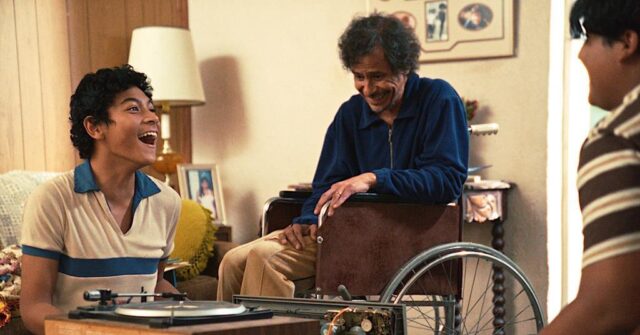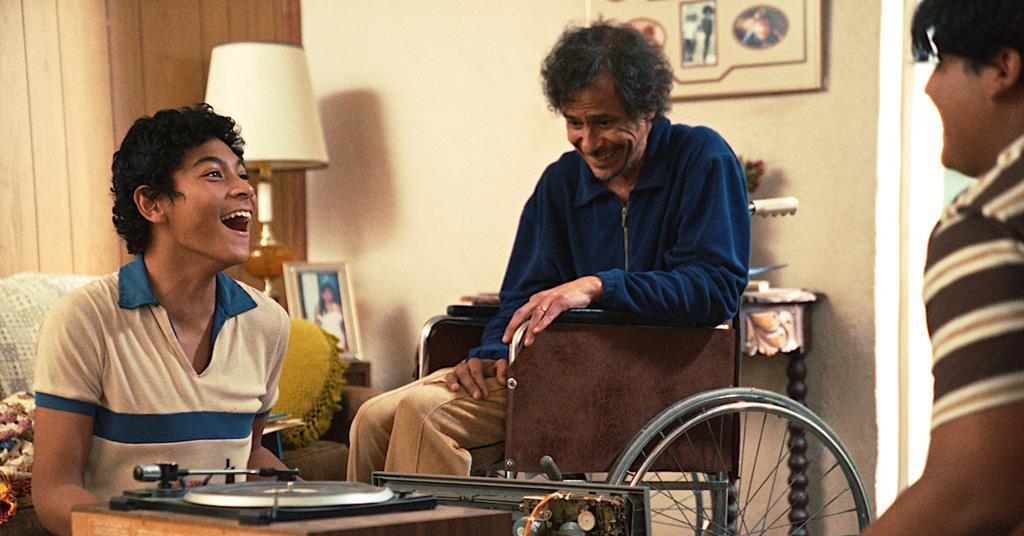
‘Olmo’ San Sebastian Review: Fernando Eimbcke’s Gentle Comedy of Growing Up
The new film by the Mexican director of ‘Duck Season’ captures the everyday struggles of a New Mexico family with warmth, irony, and a positive view of human resilience.
A balm of humor and humanity in the middle of a Mexican cinema landscape that often leans toward the opposite extreme, Fernando Eimbcke’s films work almost like a corrective, a gentle reminder: it’s possible to make movies from Latin America that embrace lightness, warmth, and a fundamentally positive view of human beings. Works like Olmo or the recent Vainilla by Mayra Hermosillo (which premiered in Venice) tell coming-of-age stories that don’t shy away from difficult contexts, but approach them from a kinder, sometimes even luminous angle.
What’s most striking about Olmo is that it was produced by the company of Michel Franco, arguably the filmmaker whose style stands in starkest contrast to Eimbcke’s — a director whose cinema is often a catalog of cruelty and degradation. Perhaps opening up to projects like this might even help lighten, however slightly, Franco’s own work. Since Duck Season, Eimbcke has been portraying groups of Mexican teenagers (or, in this case, Mexican-Americans) with the innocence and playful spirit of American teen comedies, but filtered through a looser, indie sensibility, tinged with irony.
One of the first things that stands out here is the bilingual nature of the film. The protagonist Olmo Lopez (Aivan Uttapa) and his friends speak English, while the parents and older generations converse in Spanish. There’s no spanglish, no misunderstandings, no translation needed between them. It simply works, as though this were the natural logic of their world. For these families living in New Mexico in 1979, switching back and forth between the two languages is as ordinary as breathing.

Olmo and his sister Ana (Rosa Armendáriz) live with their mother Cecilia (Andrea Suárez Paz), who keeps the household afloat, and their father Néstor (Gustavo Sánchez Parra), bedridden with multiple sclerosis and entirely dependent on care — care that sometimes arrives, sometimes doesn’t. This precarious balance has become routine for the family, meaning they don’t collapse into despair each time a new problem arises. The heart of the story, in fact, is Olmo’s desire to go to a party — partly because he’s interested in his neighbor Nina — and the obstacle posed by the need to stay home and look after his father.
Together with his friend Miguel (Diego Olmedo), Olmo’s main goal is to spend time with Nina, and one way to get closer is by lending her his sound system for the party. But the equipment doesn’t work, the car won’t start, and both his mother’s job and his sister’s obligations complicate things further. Olmo faces the choice: leave his father alone for a few hours or give up on his chance to be with the girl he likes. That’s the world of Eimbcke’s film — a human comedy about daily choices, messy families, and the universal longing to be with the person who makes your heart race.
Set in 1979, the film’s production design and soundtrack (including a brilliant use of Slade’s “Cum On Feel the Noize” and a choreographed number around a classic from Saturday Night Fever) firmly anchor it in the era. But not in a strictly naturalistic way. There’s something of a fable in the film’s staging — the town feels slightly stylized, the characters a touch more colorful than life. And when the consequences of Olmo’s “teenage sins” inevitably arrive, Eimbcke stays true to his gentle, conciliatory tone. In today’s social and cinematic climate, his films may feel more vital than those that insist on confronting us with daily cruelty. They remind us, instead, that it’s possible to live — and imagine the world — differently.



